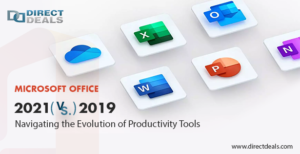CRM Software:The Essential Tool for Modern Businesses
- 1 What is CRM Software?
- 2 Benefits of CRM Software
- 2.1 1. Improved Customer Relationships
- 2.2 2. Increased Sales and Revenue
- 2.3 3. Enhanced Customer Service
- 2.4 4. Streamlined Marketing Efforts
- 2.5 5. Better Data Management
- 2.6 6. Improved Collaboration
- 3 Types of CRM Software
- 4 Key Features of CRM Software
- 4.1 1. Contact Management
- 4.2 2. Lead Management
- 4.3 3. Sales Forecasting
- 4.4 4. Email Integration
- 4.5 5. Reportcustomer’salytics
- 4.6 6. Workflow Automation
- 4.7 7. Mobile Access
- 5 Choosing the Right CRM Software
- 5.1 1. Business Needs
- 5.2 2. Ease of Use
- 5.3 3. Customization
- 5.4 4. Integration
- 5.5 5. Scalability
- 5.6 6. Support and Training
- 6 Implementing CRM Software
- 6.1 1. Define Objectives
- 6.2 2. Plan the Implementation
- 6.3 3. Migrate Data
- 6.4 4. Configure the System
- 6.5 5. Train Users
- 6.6 6. Monitor and Optimize
- 7 Conclusion
Customer Relationship Management (CRM) software has become essential for businesses of all sizes and industries. This article delves into CRM software’s benefits, types, and facets, helping you understand its importance and how it can enhance your business operations.
What is CRM Software?
CRM software is designed to help businesses manage their interactions with current and potential customers. It provides a centralized platform where companies can store customer information, track customer interactions, and streamline processes, improving customer satisfaction and driving sales growth.
Benefits of CRM Software
Implementing CRM software offers numerous benefits that can significantly enhance a company’s operational efficiency and customer relationships. Here are some key advantages:
1. Improved Customer Relationships
CRM software helps businesses understand their customers better by providing a comprehensive view of their preferences, purchase history, and interactions. This insight allows companies to tailor their communications and offerings to meet customer needs, fostering stronger relationships effectively.
2. Increased Sales and Revenue
CRM software can lead to more successful sales strategies and higher conversion rates by streamlining the sales process and providing sales teams with critical customer data. Automated follow-ups and personalized communication also contribute to increased sales and revenue.
3. Enhanced Customer Service
CRM systems enable customer service teams to access detailed customer information quickly, leading to faster and more efficient problem resolution. This capability improves customer satisfaction and loyalty.
4. Streamlined Marketing Efforts
CRM software allows businesses to segment their customer base and target specific groups with tailored marketing campaigns. This targeted approach results in more effective marketing efforts and higher return on investment (ROI).
5. Better Data Management
A CRM system centralizes customer data, making it easier for businesses to manage and access information. This centralization reduces data redundancy and ensures all team members access the most up-to-date information.
6. Improved Collaboration
CRM systems facilitate better collaboration among team members by providing a shared platform for customer information and communication. This collaborative approach ensures everyone is on the same page and can work together more effectively.
Types of CRM Software
There are several types of CRM software, each catering to different business needs and goals. Understanding these types can help you choose the right CRM solution for your business.
1. Operational CRM
Operational CRM focuses on automating and streamlining business processes related to customer relationships. It includes tools for sales automation, marketing automation, and service automation.
- Sales Automation: Helps manage sales processes, track leads, and automate follow-ups and appointment scheduling tasks.
- Marketing Automation: Assists in creating and managing marketing campaigns, segmenting customer lists, and tracking campaign performance.
- Service Automation: Enhances customer service by providing tools for managing service requests, tracking customer interactions, and automating support processes.
2. Analytical CRM
Analytical CRM analyzes customer data to gain insights into customer behavior and preferences. It uses data mining, predictive analytics, and business intelligence tools to help businesses make informed decisions.
- Data Mining: Identifies patterns and trends in customer data to predict future behavior.
- Predictive Analytics: Uses historical data to forecast future customer actions and preferences.
- Business Intelligence: Provides detailed reports and dashboards to help businesses understand their performance and identify areas for improvement.
3. Collaborative CRM
Collaborative CRM, also known as strategic CRM, focuses on improving communication and collaboration between different departments within a business and external stakeholders such as suppliers and partners.
- Internal Collaboration: Enhances communication between sales, marketing, and customer service teams, ensuring everyone is aligned and working towards common goals.
- External Collaboration: Facilitates communication with external stakeholders, helping businesses build stronger relationships with suppliers, partners, and customers.
Key Features of CRM Software
While the specific features of CRM software can vary depending on the provider and the type of CRM, some standard features are essential for most businesses:
1. Contact Management
A CRM system allows businesses to store and manage detailed information about their contacts, including names, phone numbers, email addresses, and interaction history. This centralized database ensures that all team members can access up-to-date contact information.
2. Lead Management
CRM software helps businesses track and manage leads throughout the sales pipeline. It allows sales teams to prioritize leads, schedule follow-ups, and track progress, ensuring no potential customer falls through the cracks.
3. Sales Forecasting
Sales forecasting tools in CRM software use historical data to predict future sales performance. This feature helps businesses set realistic sales targets and plan their strategies accordingly.
4. Email Integration
Many CRM systems offer email integration, allowing businesses to send and receive emails directly from the CRM platform. This integration ensures that all email communications are tracked and stored in the customer’s record.
5. Reportcustomer’salytics
CRM software provides detailed reports and analytics on various aspects of business performance, such as sales, marketing campaigns, and customer service. These insights help businesses identify strengths and weaknesses and make data-driven decisions.
6. Workflow Automation
Workflow automation tools in CRM software automate repetitive tasks, such as sending follow-up emails, updating customer records, and assigning tasks to team members. This automation saves time and reduces the risk of human error.
7. Mobile Access
Many CRM systems offer mobile access, allowing team members to access customer information and perform tasks from their mobile devices. This feature is handy for sales representatives and field service agents who need to access information on the go.
Choosing the Right CRM Software
Selecting the right CRM software for your business can be challenging, given the numerous options available. Here are some factors to consider when choosing a CRM solution:
1. Business Needs
Identify your business’s specific needs before selecting a CRM system. Consider the size of your business, the complexity of your sales processes, and the features that are most important to you.
2. Ease of Use
Choose a CRM system that is user-friendly and easy to navigate. A complex system can lead to low adoption rates and reduced efficiency.
3. Customization
Look for a CRM system that offers customization options to tailor the software to your business’s unique requirements, ensuring that the CRM system can grow with your business and adapt to changing needs.
4. Integration
Ensure the CRM software integrates seamlessly with your business’s other tools and systems, such as email marketing platforms, accounting software, and customer service tools. This integration ensures a smooth flow of information between different systems.
5. Scalability
Choose a CRM system that can scale with your business as it grows. Consider the potential for adding new users, features, and functionalities.
6. Support and Training
Look for a CRM provider that offers comprehensive support and training resources. This support ensures that your team can get the most out of the CRM system and address any issues that arise promptly.
Implementing CRM Software
Implementing CRM software involves several steps to ensure a smooth transition and successful adoption. Here are some critical steps to follow:
1. Define Objectives
Clearly define your business objectives and goals for implementing a CRM system. This clarity helps guide the implementation process and ensures the CRM software aligns with your business’s needs.
2. Plan the Implementation
Create a detailed implementation plan outlining the steps, timelines, and responsibilities. This plan should include data migration, system configuration, user training, and testing.
3. Migrate Data
Migrate your existing customer data to the new CRM system. Ensure the data is clean and accurate to avoid issues during migration.
4. Configure the System
Configure the CRM software to match your business processes and workflows. This configuration may involve customizing fields, creating automation, and creating reports.
5. Train Users
Provide comprehensive training to all users to ensure they understand how to use the CRM system effectively. This training should cover basic functionality and any customizations specific to your business.
6. Monitor and Optimize
After implementing the CRM system, continuously monitor its performance and gather user feedback. Use this feedback to make necessary adjustments and optimizations to ensure the system meets your business’s needs.
Conclusion
CRM is a powerful tool that can transform how businesses manage customer relationships. By understanding CRM software’s benefits, types, and critical features, companies can make informed decisions and choose the right solution for their needs. With careful planning and implementation, CRM software can improve customer relationships, increase sales, and enhance operational efficiency, driving long-term business success.

















